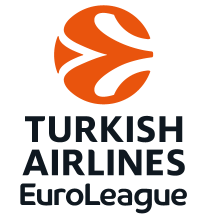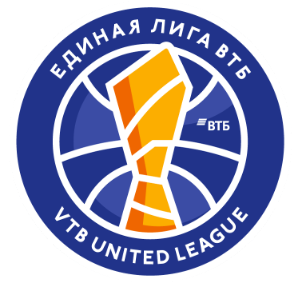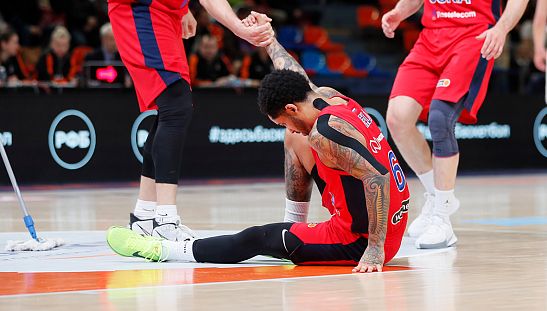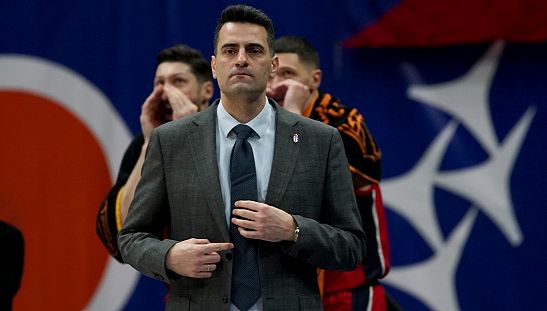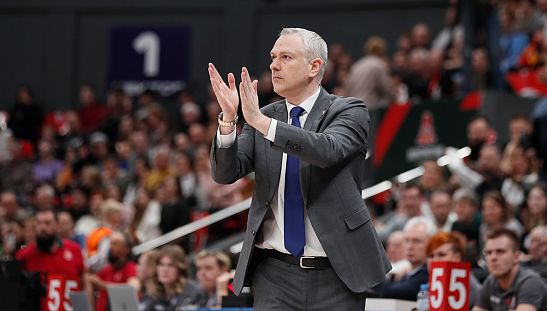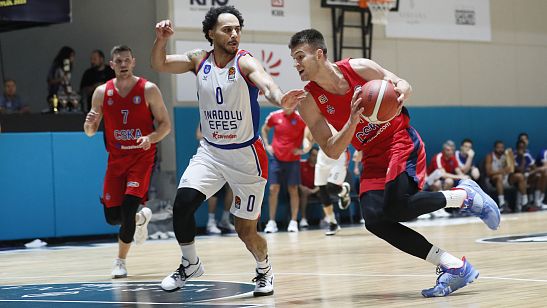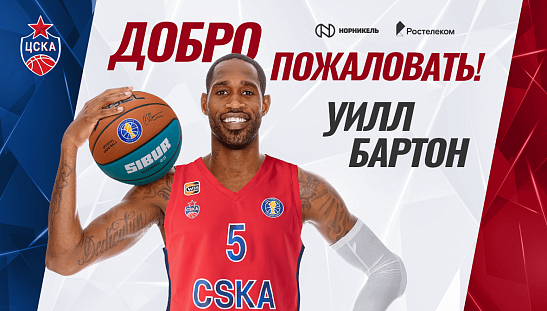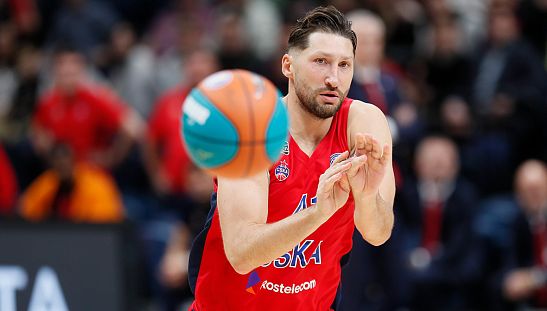CSKA in Belgrade: very busy tourists
31.12.2002
The absence of days of over the New Year’s holidays, as it turns out, is typical for team under Yugoslavian coaches. For example, the head coach of the Greek team Panathinaikos—mentor of Dusan Ivkovic Zeljko Obradovic – can’t get away to Belgrade for the New Year’s celebrations. The reason? Two practices set for December 31 and January 1.
The absence of days of over the New Year’s holidays, as it turns out, is typical for team under Yugoslavian coaches. For example, the head coach of the Greek team Panathinaikos—mentor of Dusan Ivkovic Zeljko Obradovic – can’t get away to Belgrade for the New Year’s celebrations. The reason? Two practices set for December 31 and January 1.
CSKA’s arrival didn’t get a lot of attention in Yugoslavia. The fact that Ivkovic is in Belgrade, however, is a completely different story altogether. Almost immediately upon arrival rumors starting circulating among basketball circles that the Army head coach would take over the Yugoslavian national team, which is currently without a coach after Svetislav Pesic resigned to spend more time working with the Spanish club Barcelona. Ivkovic, however, denied any such suggestions.
After the CSKA - Zheleznik - currently the first-place team in the Yugoslavian championship - game, one Yugoslavian newspaper wrote that “over the course of the of the tourist excursion, the Russian team played better than against Partizan.” However, calling the training camp a tourist excursion can only be done with a wink. Sure, in the evenings Ivkovic and his players go to restaurants where the players and their families are allowed to drink alcohol, but there remains virtually no other time for them to relax. Even the wonderful Belgrade weather - the thermometer today read 12 degrees, and two days ago it was +20 - can only be seen through the window of the hotel room or the team bus.
On Sunday evening the entire CSKA team went to a small restaurant serving Yugoslavian cuisine. There, especially for the guests from Moscow, two guitars and one banjo played music. Yugoslavian and Russian, and even American, songs were sung. A little later, in the middle of the evening, in order to give the Army players a chance to delight in all variations of the local melodies, a soloist from the Belgrade opera (who works also as a referee for water polo games) came to the restaurant to help the orchestra without the slightest hint of snobbism. True, the orchestra wasn’t able to play a lesginka, a Caucasian folk song, that team masseuse Asker Barcho wanted to dance to.
On Monday, the program was completely different. CSKA was invited to a Mexican restaurant and, naturally, the melodies were changed. The number of the night was without a doubt was a performance by two scantily-clad Brazilian dancers and the oldest of CSKA center Victor Alexander’s four children, Vika junior. Applause after the number was heard not only in the room where the team sat, but also from the parts of the restaurant where normal Belgrade citizens came and went freely.
The second CSKA game with Zeleznik took place almost unnoticed in Belgrade. It is obvious why: the newspapers went out for the New Year’s celebrations, and the city center was transformed in to one wild, reckless mass. Driving in Belgrade at this time was like driving in Moscow during rush hour. Several streets and squares are already closed due to the morning children’s shows for Belgrade children.
CSKA’s arrival didn’t get a lot of attention in Yugoslavia. The fact that Ivkovic is in Belgrade, however, is a completely different story altogether. Almost immediately upon arrival rumors starting circulating among basketball circles that the Army head coach would take over the Yugoslavian national team, which is currently without a coach after Svetislav Pesic resigned to spend more time working with the Spanish club Barcelona. Ivkovic, however, denied any such suggestions.
After the CSKA - Zheleznik - currently the first-place team in the Yugoslavian championship - game, one Yugoslavian newspaper wrote that “over the course of the of the tourist excursion, the Russian team played better than against Partizan.” However, calling the training camp a tourist excursion can only be done with a wink. Sure, in the evenings Ivkovic and his players go to restaurants where the players and their families are allowed to drink alcohol, but there remains virtually no other time for them to relax. Even the wonderful Belgrade weather - the thermometer today read 12 degrees, and two days ago it was +20 - can only be seen through the window of the hotel room or the team bus.
On Sunday evening the entire CSKA team went to a small restaurant serving Yugoslavian cuisine. There, especially for the guests from Moscow, two guitars and one banjo played music. Yugoslavian and Russian, and even American, songs were sung. A little later, in the middle of the evening, in order to give the Army players a chance to delight in all variations of the local melodies, a soloist from the Belgrade opera (who works also as a referee for water polo games) came to the restaurant to help the orchestra without the slightest hint of snobbism. True, the orchestra wasn’t able to play a lesginka, a Caucasian folk song, that team masseuse Asker Barcho wanted to dance to.
On Monday, the program was completely different. CSKA was invited to a Mexican restaurant and, naturally, the melodies were changed. The number of the night was without a doubt was a performance by two scantily-clad Brazilian dancers and the oldest of CSKA center Victor Alexander’s four children, Vika junior. Applause after the number was heard not only in the room where the team sat, but also from the parts of the restaurant where normal Belgrade citizens came and went freely.
The second CSKA game with Zeleznik took place almost unnoticed in Belgrade. It is obvious why: the newspapers went out for the New Year’s celebrations, and the city center was transformed in to one wild, reckless mass. Driving in Belgrade at this time was like driving in Moscow during rush hour. Several streets and squares are already closed due to the morning children’s shows for Belgrade children.
